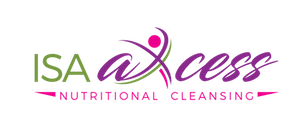Are you trying to get healthier but aren’t sure where to start? We know it can be overwhelming and confusing to live a healthy active lifestyle, so we’ve put together a guide to easy and healthy living.
Read on for 10 easy tips on how to start living a healthier life.
What Is Living a Healthy Lifestyle?
A healthy lifestyle involves a combination of factors, including:
- Eating a healthy, balanced diet
- Keeping your stress in check
- Balancing your work with hobbies you enjoy and a social life
- Focusing on your mental health
- Getting enough sleep
- Being physically active
- Taking proper safety precautions
- Prioritizing self-care
What Are the Benefits of Healthy Active Living?
If you’ve wondered, “Why is healthy active living important?”, here are some of the top benefits of healthy living:
- Improved mental health
- Natural energy boost
- Natural mood boost
- Improved physical health
- Decreased risk of health issues and illnesses
- Decreased expenses (cutting back on smoking, sugary drinks, or junk food equates to saving money)
- Improved confidence
- Decreased stress
- Increased sense of control over your health and life
10 Tips on How to Start Living a Healthier Life
1. Eat A Healthy Diet
What you eat is crucial to healthy active living. A healthy, balanced diet that includes a combination of whole foods is a great way to ensure you are nourishing your body with all the vitamins, minerals, and nutrients it needs.
To make sure you are eating a healthy diet, aim to consume:
- At least five servings of fruits and vegetables a diet
- Healthy protein from sources like fatty fish, lean meats, unsweetened yogurt, and whole eggs
- A wide variety of healthy foods
- Whole foods whenever possible
- Leafy greens daily
- Nuts, seeds, legumes, and other plant-based foods
2. Avoid Ultra-Processed Foods
A healthy diet isn’t just about what you do eat — it is also important to know which ingredients to limit or avoid.
Ultra-processed foods are low on nutrition but high in:
- Excess sugar
- Artificial colours
- Preservatives
- Excess salt
- Artificial flavours
- Highly refined oils
The ingredients and additives in ultra-processed foods make them highly palatable and easy to overeat. These foods can promote weight gain, cause cravings, and lead to a variety of negative health effects.
Try to avoid or limit ultra-processed foods such as:
- Fast food
- Sugary cereals
- Frozen meals
- Canned foods
- Cakes and cookies
- Candies
- Sugary drinks
3. Consume Less Sugar and Salt
Consuming too much sugar or salt can have negative impacts on your health, putting you at risk of conditions such as:
- Obesity
- Tooth decay
- High blood pressure
- Weight gain
- Insulin resistance
Try to keep your salt intake to less than 5 grams per day (about one teaspoon). Here are some easy tips for reducing your salt intake:
- Avoid salty snacks
- Choose low-sodium versions of products when possible
- Remove salt or seasonings from your table
- Use spices and herbs to naturally season your meals
- Limit your intake of soy sauce or other high-sodium condiments
Tips for reducing your sugar intake include:
- Avoid sugary drinks
- Make your smoothies with berries and fruits for sweetness rather than buying pre-made juices or smoothies
- Limit your intake of sugary snacks, baked goods, and candies
- Pay attention to ingredient labels (even products such as tomato-based pasta sauces and bread can contain a surprising amount of added sugar)
4. Avoid Overly Restrictive Diets
While it is important to limit or avoid certain ingredients, it is crucial not to be too restrictive with your diet. Limiting yourself or telling yourself you can never have a certain food again is a sure way to end up overeating
To make a healthy eating plan part of a long-term lifestyle, it needs to be sustainable. Restrictive diets and fad diets may work in the short term but often lead to weight gain in the long run.
Instead of fat diets or restrictive dieting, consider a sustainable, lifelong approach such as intermittent fasting. Intermittent fasting focuses on *when* you eat, not necessarily what you eat, and is a scientifically proven way to lose weight and get healthier.
Intermittent fasting offers the freedom to enjoy a variety of foods, including your favourite snacks and treats in moderation. There are a variety of intermittent fasting methods, but Isagenix uses the 5:2 method and nutritional cleansing.
With nutritional cleansing with Isagenix, individuals eat healthy for five days a week and participate in two Cleanse Days each week. Rather than traditional cleansers that are harsh and restrictive, Isagenix cleanses focus on nourishing the body with targeted supplements and healthy snacks that support its natural cleansing abilities.
5. Reduce Your Intake of Harmful Fats
There are different types of fats – some healthy, some not. It is important to limit or avoid trans fat, and fatty acids produced during the industrialization of vegetable oils.
While unsaturated fats from nuts, seeds, fish, and avocado can nourish the brain and fuel the body, trans fats can lead to health problems.
Trans fats are often found in:
- Frozen pizza
- Biscuits
- Baked goods
- Cookies
- Cooking oils and spreads
- Processed foods
To avoid trans fat, read ingredient labels carefully. If you see the words “hydrogenated oil” or “partially hydrogenated oil”, the product contains trans fat.
6. Prioritise Sleep
Getting consistent, good-quality sleep is key to overall health.
Poor sleep can lead to negative health effects, including:
- Insulin resistance
- Weight gain and food cravings
- Disrupted appetite hormones
- Decreased physical performance
- Decreased focus
- Decreased energy
- Decreased motivation
To ensure a good night of sleep, try to go to bed and wake up at the same time every day and create a bedtime routine that:
- Limits screen time
- Limits bright lights
- Includes calming activities such as diffusing lavender essential oil, a warm bath, or reading
- Keep your bedroom at a cooler temperature
- Use blackout shades to keep your room as dark as possible
7. Participate in Regular Physical Activity
Regular physical activity is one of the key factors to maintaining good health. When possible, find an exercise that you enjoy so you stay motivated to stick with it for the long run.
Feel free to think outside the box when it comes to exercise and try activities such as:
- Walking or hiking
- Mountain biking
- Swimming
- Rock climbing
- Surfing
- Running
- Longboarding
- Gardening
- Even household chores can count toward your physical activity goals!
Individual physical activity recommendations vary, but the general guideline for individuals aged 18 to 64 is to aim for at least 150 minutes of moderate-intense physical activity each week.
8. Prevent Mosquito Bites
It may be hard to believe, but one of the world’s smallest creatures is also one of the deadliest: Mosquitoes. These tiny pests are responsible for a wide range of illnesses, but simple measures can protect you and your loved ones against mosquito bites.
The following steps can help reduce your chance of getting bit by a mosquito:
- Use window and door screens
- Use bed nets
- Clean your yard weekly
- Wear insect repellent
- Wear light-coloured clothing
- Wear long-sleeved shirts and pants
- If you’re travelling to an area with known mosquito-borne diseases, take the proper precautions
9. Wash Your Hands Properly
Hand hygiene is crucial for your health and the health of others. Here is the proper handwashing technique:
- Wash your hands using warm water and soap
- Work to scrub underneath fingernails and wash up to the wrists
- To make sure you are washing your hands long enough, sing the ABCs in your head
- Rinse hands thoroughly when done
10. Prepare Your Food Safely
Consuming food that hasn’t been prepared or stored safely can lead to a variety of illnesses.
To keep your food safe, be sure to:
- Cook foods thoroughly and for the recommended length of time
- Use a meat thermometer to ensure your meat is heated to the proper temperature
- Keep your cooking area clean and sanitized
- Wash hands thoroughly after handling raw meat
- Store leftovers immediately
- Keep raw ingredients separate from cooked food
Want More Tips on How to Start Living a Healthier Lifestyle?
For more tips on healthy living, we invite you to browse our blog or our collection of products designed to support your health and wellness goals. For personalized product recommendations, feel free to reach out to our team.



 Clicker ici pour un consultant Francphone.
Clicker ici pour un consultant Francphone.




